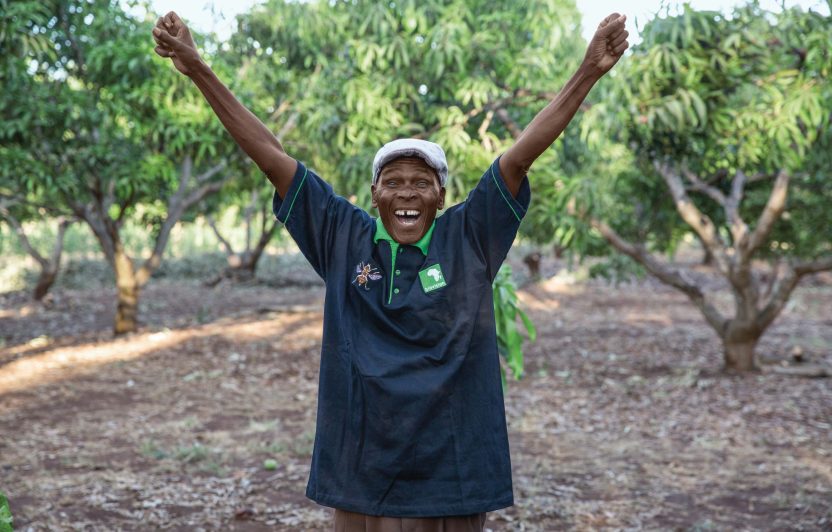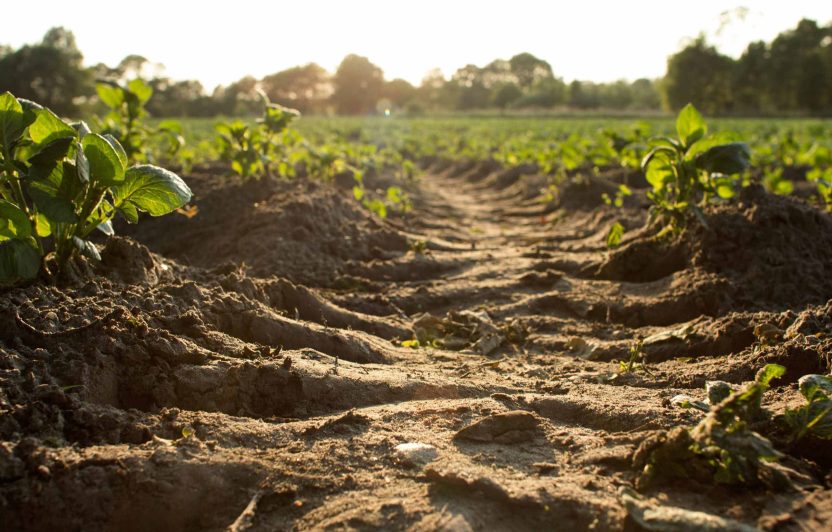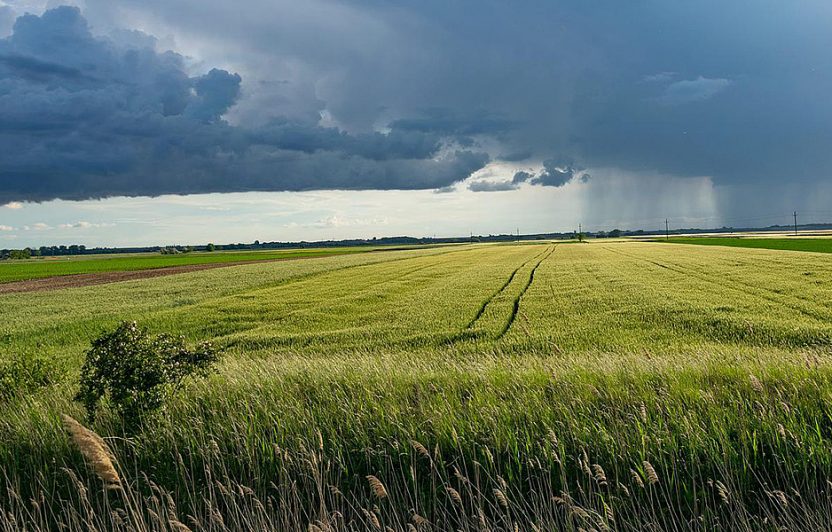Agroecology for countering the consequences of climate change
Strengthening farmers against climate change: Biovision uses traditional knowledge and the latest research for agroecological agriculture in Kenya.
Context: Valuable knowledge is being lost
As society changes, valuable knowledge about using soil, water and seeds sustainably is increasingly being forgotten. Simultaneously, climate change is presenting farming communities with ever new challenges. Together with our project partner, the Institute for Culture and Ecology (ICE), we are therefore promoting traditional knowledge in central Kenya and combining it with new scientific findings to establish sustainable agriculture.
Goals: Better living conditions, resilient ecosystems
Biovision’s goals are to preserve nature and the local population’s traditional knowledge. In parallel, food security should become strengthened and the income of families increased.
This is why farmers are, for example, being trained in organic cultivation and in storing and marketing avocados, macadamia nuts, and honey. For doing so, we rely on a combination of traditional, longstanding practices and the newest insights from research, such as sustainable fertilizers or animal feed production.
It is fundamental to improve smallholder farmers’ abilities to adapt to climate change. To this end, we want to bring together all stakeholders in the agroecological value chain and connect them with experts from research and policy makers.
At a glance
Project name:
Smallholder agriculture in central Kenya
Beneficiaries: Kenya
Project budget in CHF :
338250
Participants: Consumers Decision-makers in politics Research Institutes Smallholder farmers
Project Officer:
Project phase: 2023-2025
Partner organizations:
Institute for Culture and Ecology ICE (Kenia)
The project addresses the following SDGs from UN Agenda 2030:
This project is supported by SDC
Region
Topics
Downloads
Impact to date: Agroecology is prevailing
In moving forward, we want to connect farming families even more closely with consumers. The latter should be made more aware of agroecological and sustainable agriculture. To pursue this aim, we want to support the introduction of agroecological practices to at least 500 smallholder farming families in several districts in by 2025. They are also to be networked even more closely with relevant actors in the value chain and at the political level.
Facts and figures about the project
Over
farmers were able increase their food production.
Over
farmers practice organic and sustainable farming.
Next step: Stable value chains
In moving forward, we want to connect farming families even more closely with consumers. The latter should be made more aware of agroecological and sustainable agriculture. To pursue this aim, we want to support the introduction of agroecological practices to at least 500 smallholder farming families in several districts in by 2025. They are also to be networked even more closely with relevant actors in the value chain and at the political level.
Project website
More about this or similar projects
Politics
“To Solve the Climate Crisis, We Need to Rethink”
The influence of agriculture and the food system on the climate has been neglected in climate negotiations thus far. In recent years, Biovision has been advocating for an agroecological transformation to address climate change. It was also present this year at the United Nations Climate Change Conference (COP27) in Sharm el-Sheikh, Egypt. We spoke to Tanja Carrillo from our Policy & Advocacy team about whether this conference has brought us a step closer to climate protection.
Knowledge, Politics
Healthy soil is life!
Soil is the fundament for life on Earth, provides food and feed for all creatures above and below ground and plays a major role in climate protection! Soils bind atmospheric CO2, absorb rain water while prevent flooding, store water in long dry seasons, and buffer the extreme adverse impacts of the fast changing climate.




